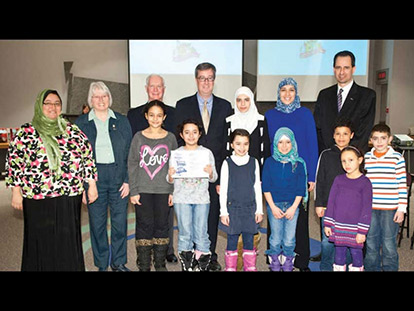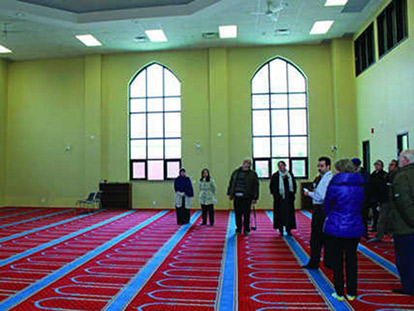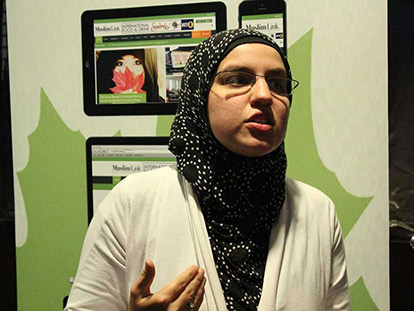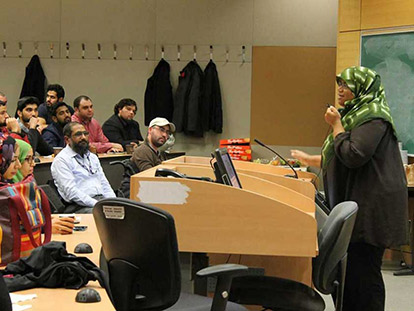Mar
Mar
Sensitivity training for care workers and providers was one of the issues raised at the third annual Conference on Spirituality and Aging on Feb. 23.
The one-day event organized by the Council on Aging of Ottawa at Saint Paul University also tackled topics of mental health, support and relief for care workers and family members, discrimination, and spiritual wellbeing.
The conference began with a keynote address by Shahina Siddiqui to an audience of about 150 people. Ms. Siddiqui, a counselor, interfaith advocate and executive director of the Islamic Social Services Association spoke on the need for spiritual-sensitivity training for hospital, and special care staff.
She noted that the biggest obstacle to providing comprehensive care that addresses the spiritual needs of the aging is “simply” a lack of knowledge and understanding of the issue among the mainstream providers of care.”
Ms. Siddiqui spoke about the application of key principles shared by all faiths, such as: consideration, patience, compassion, and respect. She cited a number of references from the Prophet Mohammed, peace be upon him.
The conference was supported and sponsored by local and international organizations such as: Islam Care Centre, Saint Paul University Centre for Pastoral Formation and Spirituality, Inter-Faith Network, Help Age Canada and the Ontario Multifaith Council.
Helen Smith, who coordinated the event with Khadija Haffajee, said one of the aims of the conference was to raise awareness of the fact seniors still experience the ebb and flow of spirituality, and therefore require continued spiritual support and encouragement. According to Ms. Smith, the notion that spirituality naturally increases among people as they grow older, has resulted in less focused attention being given to the spiritual health of the elderly.
The workshop was designed for seniors, caregivers and students, and was open to the general public. A fair number of Muslims participate id the event.
Manar El Malmi, a member of the nursing and personal care giving community, said she attended the conference to educate herself on an issue she believes is crucial to people in her field of work. In her experience, Ms. Malmi said she felt that “patience” and “respect” highlighted by Ms. Siddiqui, were the most critical points.
She said that in her line of work she sees “a lot of disrespect of patients either out of ignorance, or most sadly, on purpose because (the care giver) can't be bothered.”
She went on to say that in some cases the religious dietary concerns of elderly patients are ignored. “If the diet chart says “no pork” they will still provide foods that contain pig.”
She agreed with Ms. Siddiqui that all hospital and support staff ”“ especially those caring for the elderly --should be required to take courses on spiritual sensitivity.
In a later session, when asked whether it was taboo for Muslims to place aging family members in nursing homes, Ms. Siddiqui said “the Muslim community tends to care for their elderly” but pointed out that there are a number of Muslim families who have to admit their elderly family members to such facilities that can provide specialized care for things like dementia. She reflected on the fact that many Muslims migrated to Canada in the 1970s and 1980s leaving their parents back home. She said “now our children are dealing with an aging segment of the community and have had no role model on how to deal with elderly parents.”
Ms. Siddiqui urged more Muslims to join this line of work because of the unique emphasis given by Islam to addressing the needs and concerns of elderly, no matter what their faith. She said, “If people knew the reward in doing this type of work they would run to it.”
This article was produced exclusively for Muslim Link and should not be copied without prior permission from the site. For permission, please write to info@muslimlink.ca.















